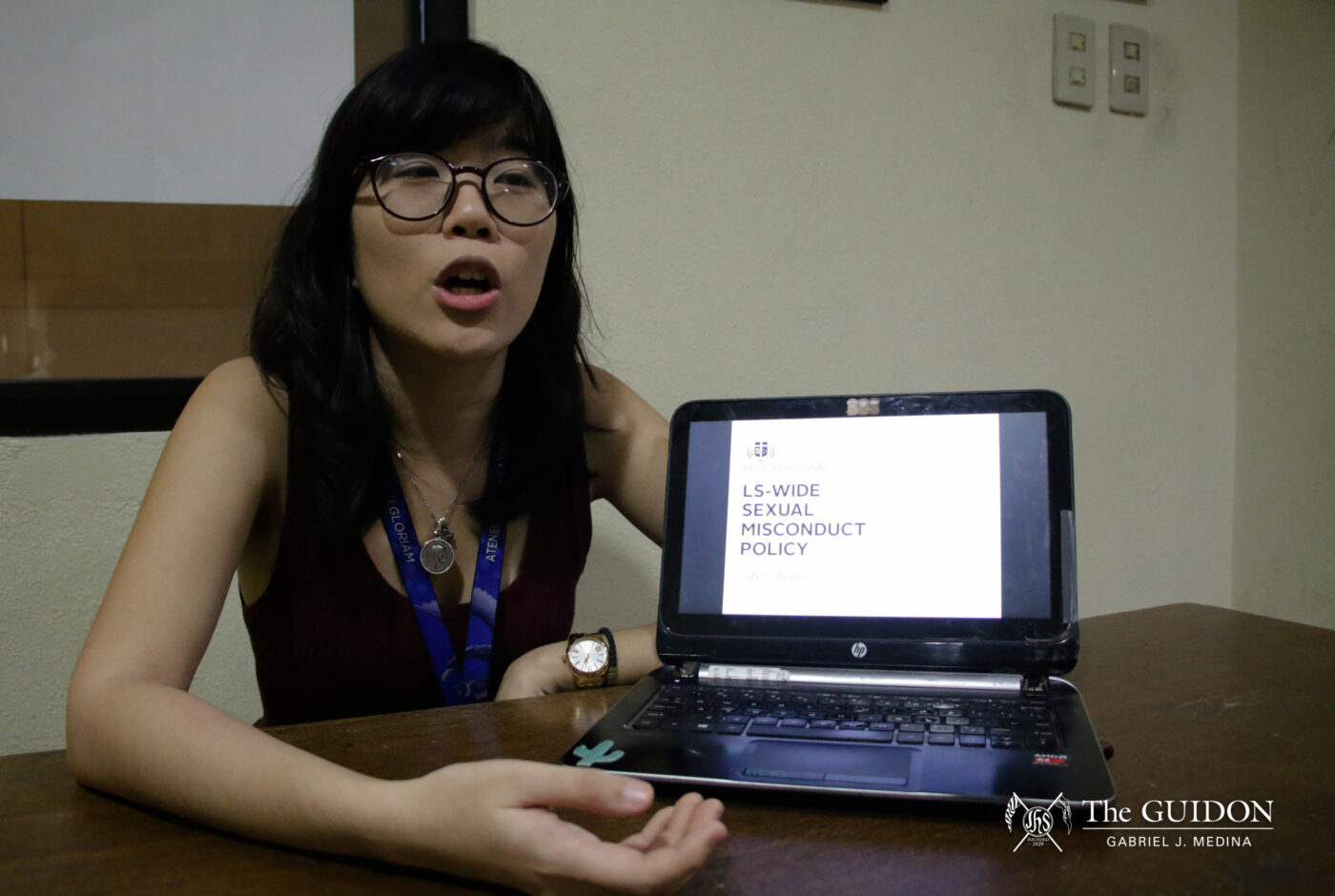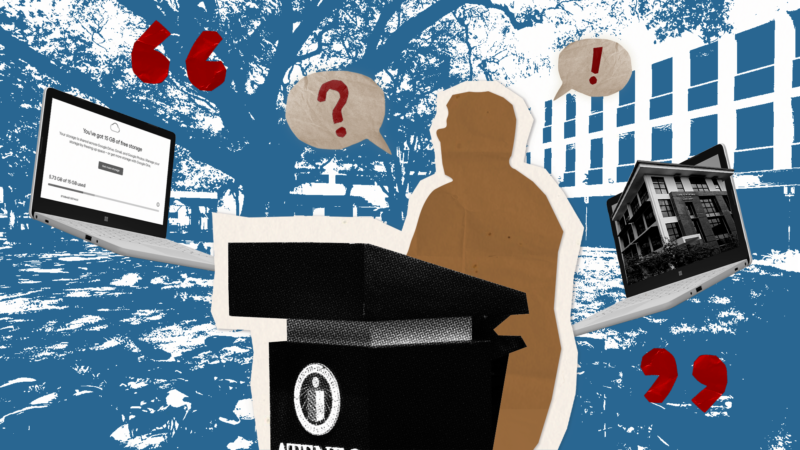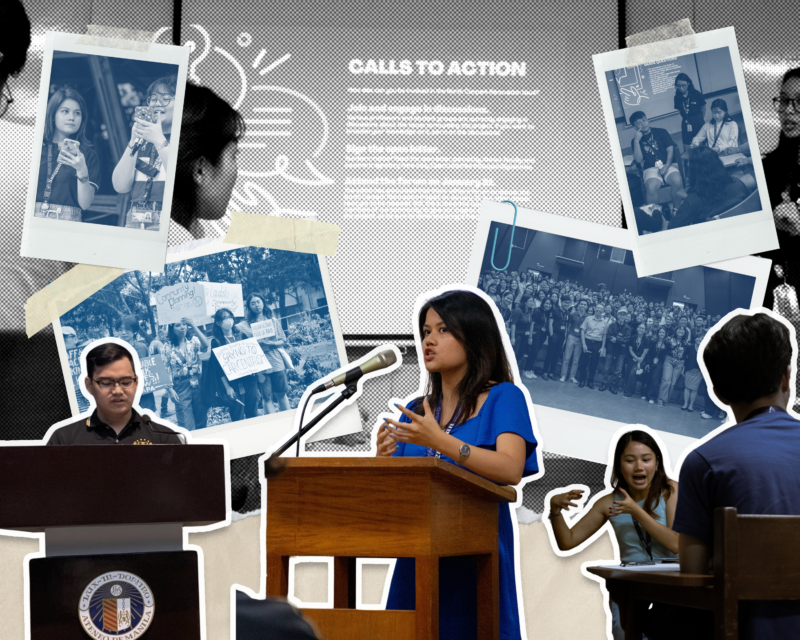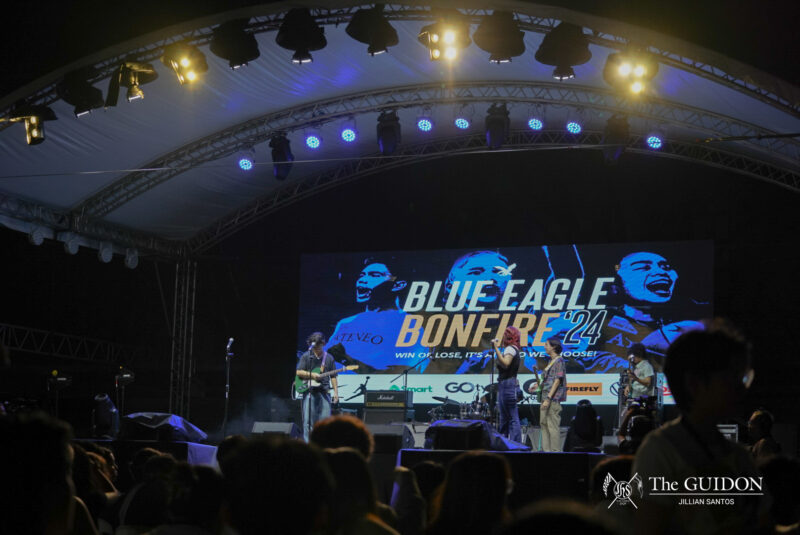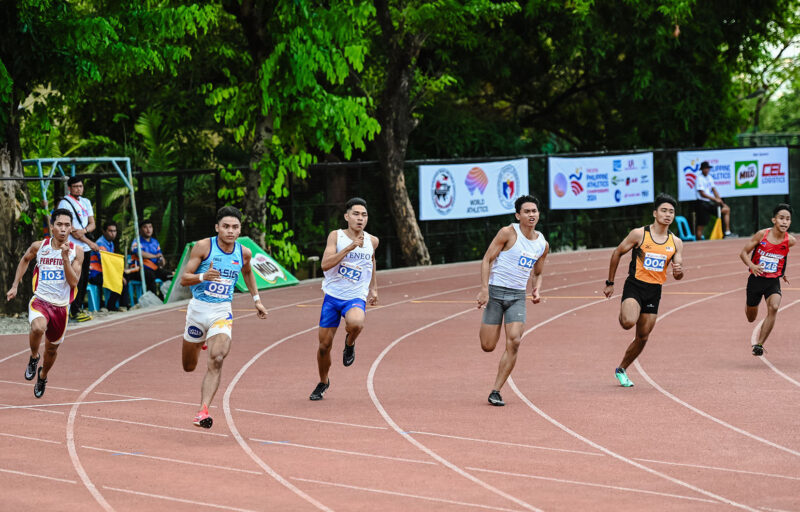FOLLOWING A rise in the number of sexual harassment and gender-based complaints forwarded to them, the Sanggunian released a proposal for a University Sexual Misconduct Policy through an open document on January 3.
While there is an existing policy regarding “acts of misconduct of a sexual nature” committed by students in the Code of Conduct in the Undergraduate Student Handbook, the proposal contains policies specifically for peer-to-peer cases of sexual misconduct.
School of Social Sciences (SOSS) Representative Dasha Uy said that the document adds to current policies by clearly defining sexual harassment.
“Sometimes people aren’t really sure if what they’re doing is sexual harassment or sexual misconduct,” Uy said.
The proposal stressed that it is “by no means a final or complete version,” and students were encouraged to comment, raise questions, and offer suggestions.
Addressing gaps
The proposal stated that “there is no existing peer-to-peer sexual misconduct policy” in the school protocols, and that Philippine law only covers sexual misconduct cases that fall under hierarchical settings such as that of a teacher and a student.
In addition, the proposal also provided a set of definitions for terms such as sexual misconduct, consent, and sexual harassment.
Sexual misconduct is defined in the proposal as “derogatory or degrading remarks or innuendos directed towards the members of one sex or sexual orientation used to describe a person or, verbal abuse with sexual overtones,” “malicious leering or ogling,” “gestures with lewd insinuation,” and “unwelcome inquiries or comments about a person’s sex life,” as well as other analogous cases.
Meanwhile, consent is defined in the context of a sexual act as “an agreement to participate in sexual activity” that must be “freely given, enthusiastic, specific and continuous, informed, reversible, and mutually understood.”
The proposal also recommended a creation or designation of a University office which will provide medical or legal assistance and proposes that the policy be applicable to anyone in the Loyola Schools (LS) community.
Current policies, possible improvements
On May 31, 2017, Vice President for the Loyola Schools (VPLS) Maria Luz Vilches, PhD released a memorandum regarding the procedures for filing and handling sexual harassment cases.
The memo stated that the office of the VPLS will receive all written complaints of sexual harassment, and it will assess if these allegations fall under the prescriptions of the Anti-Sexual Harassment Act of 1995. Such acts would be forwarded to the University Committee on Decorum and Investigation for investigation and possible prosecution.
The Sanggunian also has a Women’s Desk, which receives complaints about sexual harassment and forward these to the OSS.
Upon reviewing the document, Vilches said, “There are a few things that [the administration is] doing that are not known to the students” and noted that the document providing stricter definitions on sexual misconduct may act like a “two-edged sword.”
“What is going to happen when you are very specific about a definition, when something else arises given the nature of social media and all the rest of it, how are you going to judge this sexual misconduct if it’s not within the strict definition?” she said.
“I would go with the more general one, which is an offense against persons and then take it from there in terms of the specifics because we cannot anticipate what other forms of sexual behavior there are,” she added.
In addition to this, Office for Student Services Director Cholo Mallillin said that the OSS can receive cases of sexual misconduct, but the office elevates cases that involve sexual harassment to the office of the VPLS.
Mallillin noted that the Office of the VPLS plans to organize an ad hoc gender and development operations committee, which will receive complaints of a sexual nature.
The office of the VPLS also runs the University’s Gender Focal Committee. According to Assistant to the VPLS for Formation Rene San Andres, the committee’s first project, a Gender Audit on existing gender policies and programs in the LS, is already being conducted. Results were expected to arrive at the end of 2017, but the study was delayed because of the submission of data privacy and ethical requirements.
San Andres also said that the Office of the VPLS has been conducting gender sensitivity training for handlers of student cases since September 2017. Offices that have received this training include the OSS, the LS Office of Guidance and Counseling, the LS Office of Health Services, the Committee on Discipline, Associate Dean for Student Formation Roberto Guevara, PhD’s formation team, and members of the Theology Department.
While Mallillin said that the current processes and procedures for handling cases of sexual harassment are “sufficient,” he noted that students may lack information on how to report such concerns, and that delay in processing cases may give the impression that the administration does not deal with such incidents.
OSS Assistant to the Director Maria Paulino said that cases are delayed by case conferences and the collection of statements and facts from complainants and respondents.
With regards to the document’s scope, Mallillin expressed concerns that the proposal may be too narrow in its focus.
“We don’t feel the need to have an entire policy addressing just sexual misconduct. We are addressing the bigger issue, ‘yung respect for gender,” he said.
He suggested that the document should approach the problem by including more policies that address sensitivity and awareness for these issues.
“So that’s what we’re really pushing for, a wider scope,” he said. “We want to see it from a broader perspective of teaching people how to deal with gender sensitivity.”
However, Mallillin said that the document showed how the University could improve its “capacities [for handling] the intricacies of many aspects of these types of complaints.”
Student feedback
Aldrin Mallari, an information technology entrepreneurship senior, said that the release of the policy online elicited a good reaction from the LS Community.
“There are people looking at it, reading it, sharing it, commenting about it. I think it’s really good they were able to share kasi Sanggu’s always trying to be more open with students,” he said.
Meanwhile, information design senior Yuri Tan said that while the open document was a good idea, focus group discussions (FGDs) could have been done alongside the document to make the proposal more accessible.
According to Uy, although the Sanggunian’s planned FGDs may not push through due to “pre-end of the term” work, they may conduct surveys regarding the policy proposal. As of writing, the time frame for the distribution of these remains unsure.
Nicole Mempin, a political science senior, underscored the importance of having more open conversations about sex and rape culture in combating sexual misconduct on campus.
“Normalization of safe and consensual sexual acts is important in minimizing the shame of reporting sexual harassment and rape,” she said.

